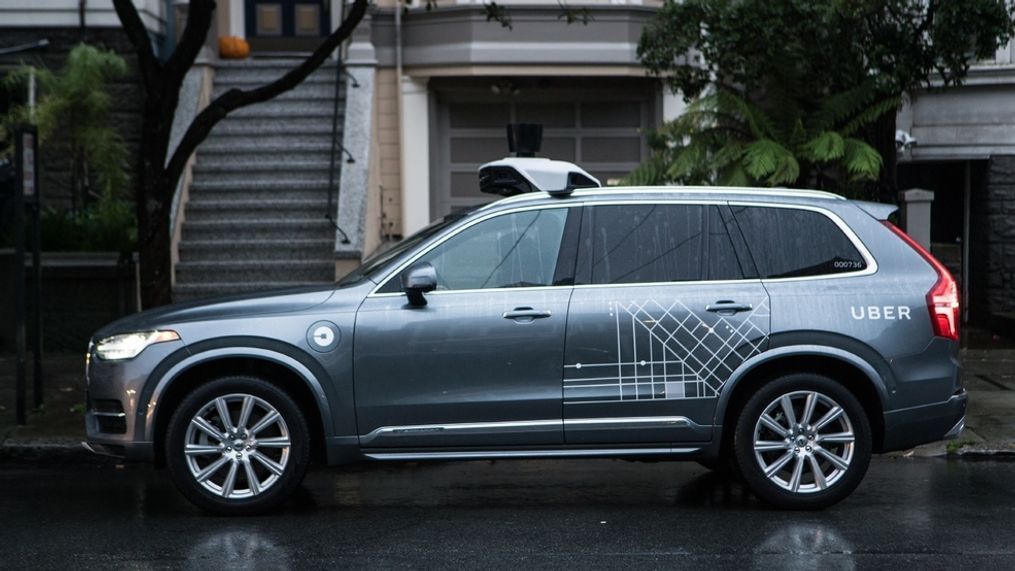IIHS faults Uber for deactivating Volvo's automatic emergency braking in fatal crash

In a report Tuesday, the IIHS said that Uber's decision to turn off active safety gear in its Volvo XC90 self-driving test vehicle contributed to the death of a pedestrian in Arizona in March.
According to an NTSB report, Uber deactivated Volvo's automatic emergency braking system in order to test its own experimental self-driving technology. That move has drawn the ire of the insurance industry-funded IIHS.
MORE: Self-driving Uber car in Arizona hits, kills bicyclist
"I think it's possible that, had the system been able to intervene, the fatality may not have occurred," IIHS chief research officer David Zuby said in a phone interview with Reuters.
Data pulled from Uber's data recorder indicates that its software detected Elaine Herzberg as she walked her bicycle across the street in Tempe, Arizona, late on the night of March 18. However, the Volvo SUV's automatic emergency braking system with pedestrian detection had been deactivated, even though it defaults to "on" when the vehicle is started.
"What's chilling is that the engineers behind Uber's software program disabled the system's ability to avoid a life-or-death scenario while testing on public roads," Zuby said in a statement. "Uber decided to forgo a safety net in its quest to teach an unproven computer-control system how to drive."
DON'T MISS: Fatal crash prompts Uber to shut down Arizona self-driving car trial
The NTSB said in its report that Uber test driver Rafaela Vasquez was looking down in the moments prior to impact, possibly at a cellphone that was streaming the TV show "The Voice." Uber's software recognized the pedestrian, first classifying her as an unknown object, then as a vehicle, and finally as a bicyclist.
The Uber system was not designed to alert the test driver or to automatically apply the brakes, instead relying on the human behind the wheel to apply the brakes to avoid impact or drive around any road obstructions. By contrast, Volvo's built-in automatic emergency braking system is designed to alert the driver and then quickly apply the brakes to avoid impact if the driver doesn't intervene.
The IIHS rates the Volvo's automatic emergency braking system as "Superior," its highest score.
Uber has since ceased self-driving car testing in Arizona.
Read more from Internet Brands Automotive:
- Elon Musk isn't kidding, Tesla board confirms TSLA could go private
- Tourist racks up $47,000 in speeding fines with rented Lambo
- 2019 Dodge Challenger SRT Hellcat Redeye first drive review: Demon spawn
- 10 millionth Ford Mustang gallops off the assembly line
- Saleen Sportruck XR is a hotter 700-plus-horsepower F-150 Raptor
